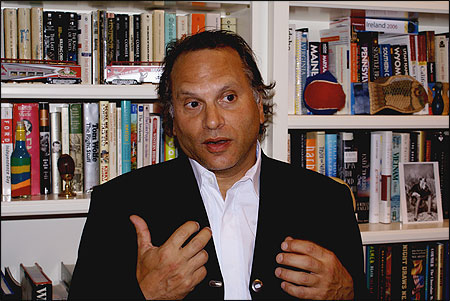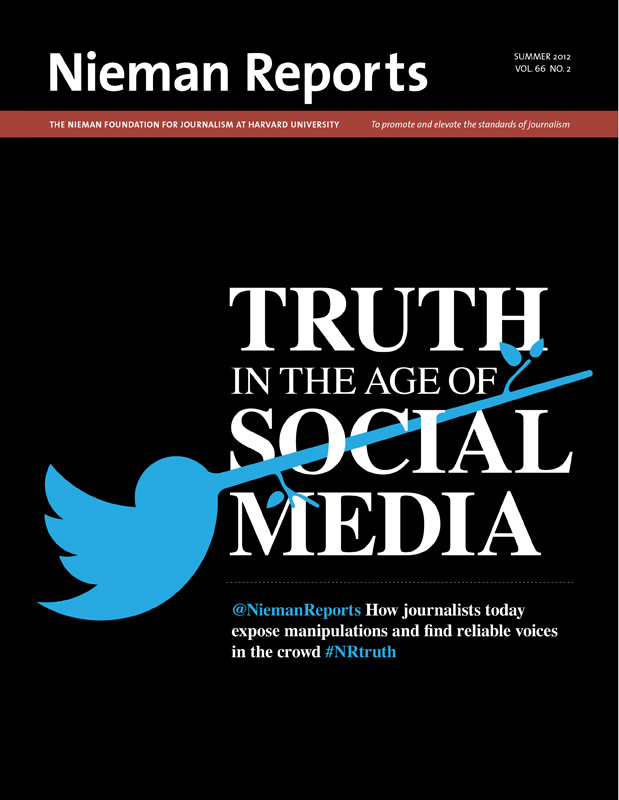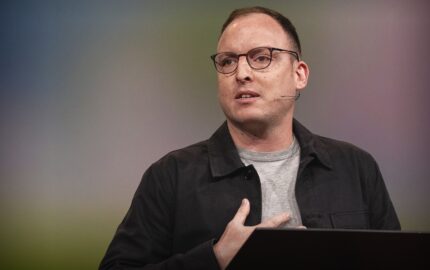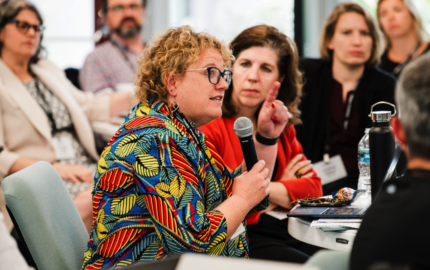
The 2012 fellowship year ended on a bittersweet note this spring when narrative nonfiction legend Buzz Bissinger, NF '86, came home to Lippmann House to talk about his new book, "Father's Day: A Journey Into the Mind and Heart of My Extraordinary Son."
"The Nieman year was probably the most special year of my life," he told fellows, who moments later would have their closing barbecue. "The intimacy, the stimulation … people say, 'Why'd you begin to write books?' The reason I really began to write books is that after my Nieman year I felt I owed it to myself to go and do something out of the box, and really, really do something different, not simply go back to my paper with the sort of glow of a great year. So that's what I did."
Bissinger of course went on to write the iconic "Friday Night Lights: A Town, a Team, and a Dream," a narrative about high school football in Texas, and other acclaimed books. "Father's Day," published by Houghton Mifflin Harcourt, is about a cross-country road trip with one of his twin sons, Zach, a 24-year-old savant.
In conversation with curator Ann Marie Lipinski, NF '90, who was his editor at the Chicago Tribune, Bissinger talked about books, newspapers and the best possible attitude for an outgoing Nieman. What follows is an edited excerpt; a full transcript is available at Nieman Storyboard, along with an excerpt from "Father's Day":
I get excited about a lot of ideas and I just let them sit. I get a sort of pulsating feeling in my heart, my chest—this excitement. And if the excitement lingered that meant I was onto something.
I had a passion and a feeling in my heart that ["Friday Night Lights"] was the right book for me to do. And then I got lucky.
As my father says, "You have to be close to be lucky."
As a journalist, all I ever do is try to get people to be honest about themselves and open up. I felt, well if I'm gonna turn the light on myself I have to be honest, because I think there's purity in honesty. I think that's where you learn about people.
Did ["Father's Day"] change me? Did the trip change me? I don't think it did.
I'm still ambitious. I'm still frantic the book will be a failure and if it's a success it won't be as big a success as I anticipated. But it did make me feel closer to Zach.
What was great about journalism when I entered it, which was right after Watergate, in 1976, papers were hot, papers were making money, but beyond that they all wanted investigative reporting, they all wanted long-form reporting.
The key to reporting is to zig while everyone else zags.
After your Nieman year you owe it to yourself to do something different. Even if you're going back to your own paper, do something different. Do a different beat. Write a book. Whatever. Just do something different.



